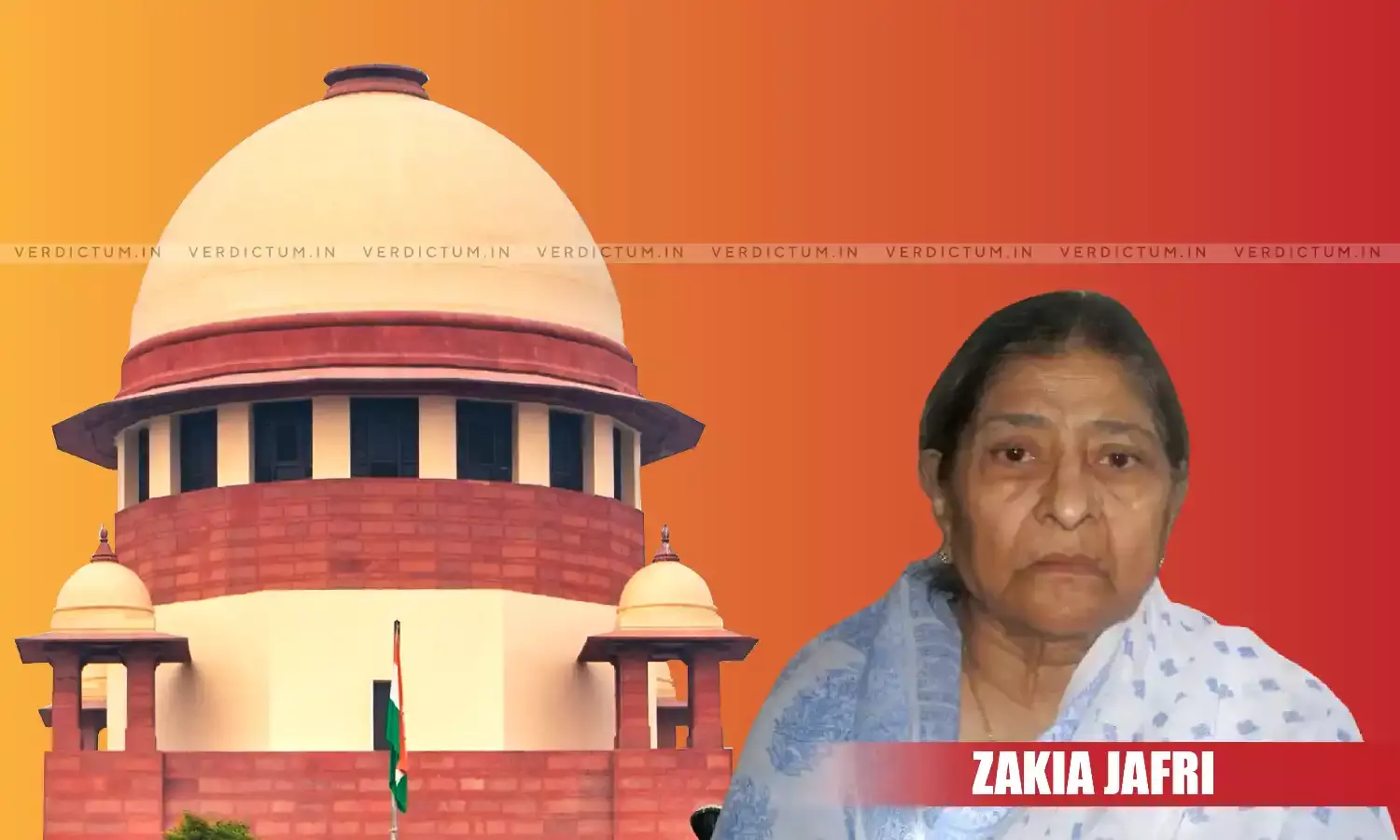To Say That Godhra Incident Is Part Of Larger Criminal Conspiracy By State Is Preposterous: Supreme Court
The Supreme Court has termed 'preposterous', the argument that the Godhra carnage involving the burning of the Sabarmati Express train returning from Ayodhya along with 59 Kar-sevaks is part of a larger conspiracy by state at the highest level.
The appellant Zakia Zafri had argued through Senior Advocate Kapil Sibal that the post-mortem of the Godhra carnage victims were done in the open yard as part of larger criminal conspiracy to obliterate the real cause of death of Kar-sevaks.
The Court rejected the argument stating "This plea taken in the protest petition is of pure conjectures and surmises".
The Bench of Justice A M Khanwilkar, Justice Dinesh Maheshwari and Justice C T Ravikumar observed in their judgment that to make out a case of larger criminal conspiracy regarding the 2002 Gujarat riots, it is essential to establish a link indicative of meeting of minds of the concerned persons for commission of the crimes, committed during the relevant period across the State "including the heart-rending episode unfolded at Godhra on 27.2.2002, in which large number of Kar-sevaks were burnt alive in train bogies".
No such link is forthcoming, much less had been unravelled and established in any of the nine cases investigated by the SIT under the directions of the Supreme Court, the Bench said.
Accepting the argument of Zakia Zafri would require questioning the wisdom of the Supreme Court and to hold that even the incident at Godhra that unfolded on February 27, 2002, was also the outcome of an alleged larger criminal conspiracy, the Court held, remarking that "such a view would be preposterous".
The Court noted that the Godhra incident has been fully enquired into by the SIT to the satisfaction of this Court and even the trial had ended in recording conviction against the accused belonging to the minority community. "As to how the Godhra incident unfolded, has been analyzed by the High Court in confirmation appeals in Godhra train case about the acts of planning and commission by a group of persons", the Court observed.
"The State of Gujarat has a long history of communal riots way back to 1714. Thereafter riots had erupted in the State on many occasions during the last three centuries. However, post-independence, major riots took place in the State in 1969, 1985 and 1992-93", the Court quoted from a statement recorded by the SIT.
"At the cost of repetition, be it noted that the SIT had not found any conspiracy for linking the separate incidents of mass violence across the State during the investigation of nine (9) separate crimes including the Godhra train incident, dealt with by the SIT under the strict vigil and supervision of this Court and ably assisted by the learned Amicus Curiae playing the role of devil's advocate", the Three-Judge Bench said.
The Court, in its 452 page judgment, has rejected the theories of Zakia, including the one based on the statements of Sanjiv Bhatt and R.B. Sreekumar that in a meeting held on February 27, 2002, on the day of the Godhra incident, then Chief Minister Narendra Modi asked the senior police officials to allow Hindus to vent their anger on the minority community. (read report)
The Supreme Court has also called for action against those involved in the abuse of process of court to "keep the pot boiling" for "ulterior design". (read report)




